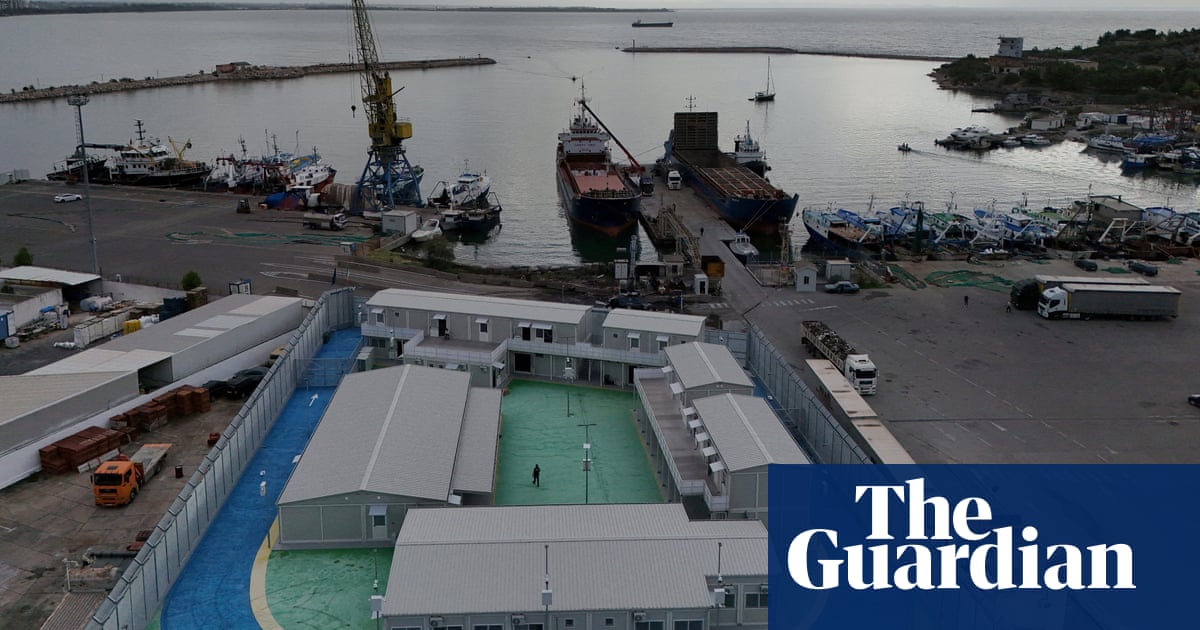When Italy opened migrant centres in Albania in October the plan was clear: 3,000 people a month intercepted in Italian waters would have their asylum claims processed beyond Italy’s borders, monitored by Italian police officers.
Two months later, undercover Albanian journalists posing as tourists caught up with some of those officers staying at a 5-star hotel with a pool and spa in Shëngjin, the Albanian port that houses the migrant centre.
“We came here for work, we are the security for the migrant centre […] but there are no migrants in the facilities, they have been transferred to Italy,” the officers told the Piranjat TV journalists. “It’s just us here. We are paid to act as tourists: breakfast, dinner, and sauna, all free – the Italian government pays.”
Human rights violation aside, what’s the interest of off shores migrant centers ?
I think the first paragraph kind of hints at Italy’s perspective on that …
When Italy opened migrant centres in Albania in October the plan was clear: 3,000 people a month intercepted in Italian waters would have their asylum claims processed beyond Italy’s borders, monitored by Italian police officers.
My take on that is that even tho the migrants would be intercepted in Italy’s waters they would never make it onto Italian soil, so would have no ‘status’ to apply to Italy as an immigrant.
No, that’s not it. It’s a little “trick” that’s becoming popular with European politicians from the right, all the way to the centre-left.
According to international law, those asylum seekers have a right to have their request for asylum processed, by the country they’re in when they make that request. Processing someone’s request for asylum is something that can sometimes take a long time, and if their request is denied, it can still be very difficult to deport them - which is why you also see some countries giving denied asylum seekers a monetary reward for going back.
Hosting asylum seekers, especially a lot of them, can become quite unpopular, both locally, and in the population in general. The reasons for this is usually that it costs money to host and process asylum seekers, which some people feel is an undue burden put on their country, especially if they have a perception of the asylum seekers not seeking asylum in good faith, but are rather just economic migrants.
Additionally, it would be a terrible disregard of human rights to lock up these asylum seekers, as if they were criminals, and the asylum centre a prison. That means that they of course need to be able to go outside, and live as normal lives as possible, while their request is being processed, and their children will have to go to the local schools, etc.
In addition, I believe there are often put restrictions on their ability to work, as a measure against economic immigration - but the side effect of that is that they are much more likely to be seen as an undue drain by the general population. Countries are often loathe to start integrating people, when they expect to reject the vast majority of them. The consequence of that is that these people end up being very poorly integrated.
Besides that, there also tends to be a higher average crime rate among asylum seekers. The local communities that host the asylum centres of course reacts to that, and some people will start to feel unsafe, whether due to prejudice, or due to incidents of crime relating to some of the asylum seekers.
So, the clever “trick” that is becoming popular among politicians is to pay a foreign country to have their asylum centres built there, send all of their asylum seekers off to those centres, and often to staff those centres largely or partly with nationals of this foreign nation. From the point of view of these politicians, it solves a lot of the problems, and it lets them look “tough on immigrants”.
The legality of all of this is still being hashed out, and courts are sometimes foiling those plans entirely. Whether this trick is or can be technically legal or not, and even if this method could be used in a fair and reasonable manner, it seems to always be bereft with very questionable practices or methods, as in this case, or when a European country tries to set up asylum centres in an African country that has a long track record of human rights abuses against - whaddya know - asylum seekers.
I can’t speak for European statistics but migrants in the US have a lower crime rate. They want to interact with the police as little as possible.



